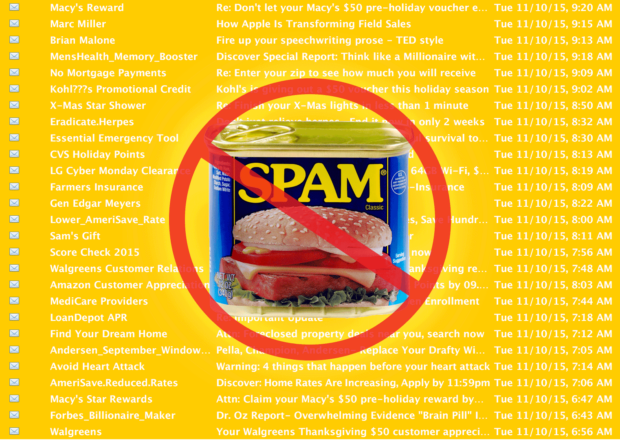Spammers look all around the Internet and do their best to steal your personal information, credit card numbers, and bank account balances. From phishing emails asking you to wire money to spam emails trying to flood your computer with viruses, it’s hard to keep up with all of the evil entities and scam artists on the web. Fortunately, it is possible to reduce your exposure to scammers so they can’t find you. Follow these steps to protect your personal information from phishing emails and help keep spam emails and scam artists away.
Watch Out: 4 Ways To Protect Yourself From Spam Emails and Scam Artists Share on X01) Set up a Junk Email Account For Potential Spam Emails
Companies ask for your email almost everywhere you go. Whether you’re buying a sweater at the mall or trying to read a political article online. The fastest way to clog your inbox is to hand your email address out to anyone who asks. However, this practice isn’t just annoying, it’s potentially dangerous. Hacked companies often expose customer information to the rest of the world. Once hackers have your email address, they can increase the number of phishing emails you receive or use your username and password to access all kinds of personal information.
Consider setting up a junk email account that you use when unwanted solicitors ask for your contact information. Let any potential phishing emails go to that inbox. If you’re receiving unwanted emails to your main account, scroll to the bottom and unsubscribe from their customer lists. At the very least, this will reduce the number of emails you receive on a daily basis. At most, it will limit the options of spammers if they do hack your account, as none of your personal or bank information will be accessible.
02) Invest in Spam and Ad Blockers
There are multiple apps in Google Play and the Apple App Store like Norton AdBlocker to block spam emails and keep your information safe, along with widgets you can add to limit your exposure to pop-ups and banners. Most of these are free and minimally invasive.
While not all ads are bad — and most websites rely on advertising revenue to stay afloat — there are some bad apples that ruin advertising for everyone else. These are the spammers that boast miracle treatments or take up the entire page with no way to click out.
Typically, if a company isn’t following the basic guidelines for ad creation (meaning they’re invasive, hard to get rid of, and blocking access to the content) then they’re typically spam and should be avoided or reported to the owners of the website.
03) Block Your Phone Number When Returning Calls
If you’re receiving calls from unknown numbers or are repeatedly receiving calls from numbers that you don’t recognize, check reverse lookup websites like SpyDialer or Spokeo. Other callers will leave feedback about specific numbers if they receive unwanted calls to warn people not to pick up.
If the number doesn’t turn up on these lookup sites but you’re still convinced it’s spam, consider calling them from a blocked number. These blocked calls from your phone will allow you to determine what kind of company or person is calling you and what they want without giving them access to your information. This way, you can also take the information and report scam artists and spammers to the FCC.
04) Report Spam Emails When You Get Them
Most people scroll past spam accounts when they see them on social media channels like Twitter or just delete spam emails from their email accounts. However, this doesn’t actually make the Internet a better place, and it just creates more spam in the future.
Whenever you get a spam email in your inbox, make sure to report it. This will help your provider filter the email in the future so you don’t see it. Furthermore, when it comes to social media, if you see something, say something. Reporting a spammer can get that account shut down so other users won’t fall victim to them.
It’s Up To You to Protect Yourself
Spammers and scam artists might never completely go away on the Internet, but as long as people continue to report them and teach others how to avoid them, they will become less effective.
Most security breaches occur because of human error. It’s up to you to be alert, question everything, and report phishing emails and scams when you see them.
Related Articles:
- This is What Happens When You Reply to Spam Email
- How To Keep Spam Email From Invading Your Microsoft Outlook Inbox

Frank Wilson is a retired teacher with over 30 years of combined experience in the education, small business technology, and real estate business. He now blogs as a hobby and spends most days tinkering with old computers. Wilson is passionate about tech, enjoys fishing, and loves drinking beer.














 14 Creative Tactics to Boost Employee Morale
14 Creative Tactics to Boost Employee Morale
Good tips! How do I get in a do not call list for VOIP numbers?